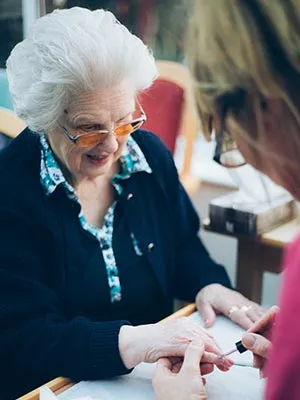
Entering a care home marks a new chapter in the lives of elderly individuals. It often comes with a mix of emotions, including the challenge of relinquishing some level of independence. However, with thoughtful approaches and supportive strategies, we can make this transition smoother for our loved ones.
Creating a Home Away from Home: One of the key elements in helping elderly residents feel comfortable in care homes is creating an environment that feels like a home away from home. Personalising living spaces with familiar items, cherished photographs, and beloved possessions can provide a sense of continuity and comfort.
Establishing a Routine: Routines are crucial for maintaining a sense of normalcy. Care homes can work towards establishing daily routines that align with the residents’ preferences and habits. Whether it’s meal times, social activities, or relaxation periods, having a predictable schedule can contribute to a feeling of security.
Encouraging Social Connections: Building connections with fellow residents and staff is vital for combating feelings of loneliness. Social interactions can include group activities, outings, and events that encourage engagement and companionship. This sense of community helps combat isolation and fosters a supportive atmosphere.
Empowering Independence within Limits: While residents may experience a decrease in certain aspects of independence, it’s crucial to identify areas where they can still exercise autonomy. Simple choices, such as selecting meals or participating in decision-making regarding their daily schedule, can provide a sense of control and empowerment.
Open Communication and Involvement of Family: Maintaining open communication channels between staff, residents, and their families is essential. Regular updates, family involvement in care plans, and addressing concerns promptly contribute to a collaborative and transparent environment. This ensures that everyone is on the same page and working towards the resident’s well-being.
Providing Emotional Support: Moving to a care home involves a significant emotional adjustment. Offering emotional support through trained professionals, counselling services, or support groups can help residents navigate their feelings and cope with the changes in their lives.
In summary, the transition to a care home can be challenging, but with a thoughtful and compassionate approach, we can help elderly residents feel more comfortable and at ease. By creating a home-like atmosphere, establishing routines, encouraging social connections, empowering limited independence, and maintaining open communication, we can contribute to a positive and enriching experience for our loved ones in care homes.
